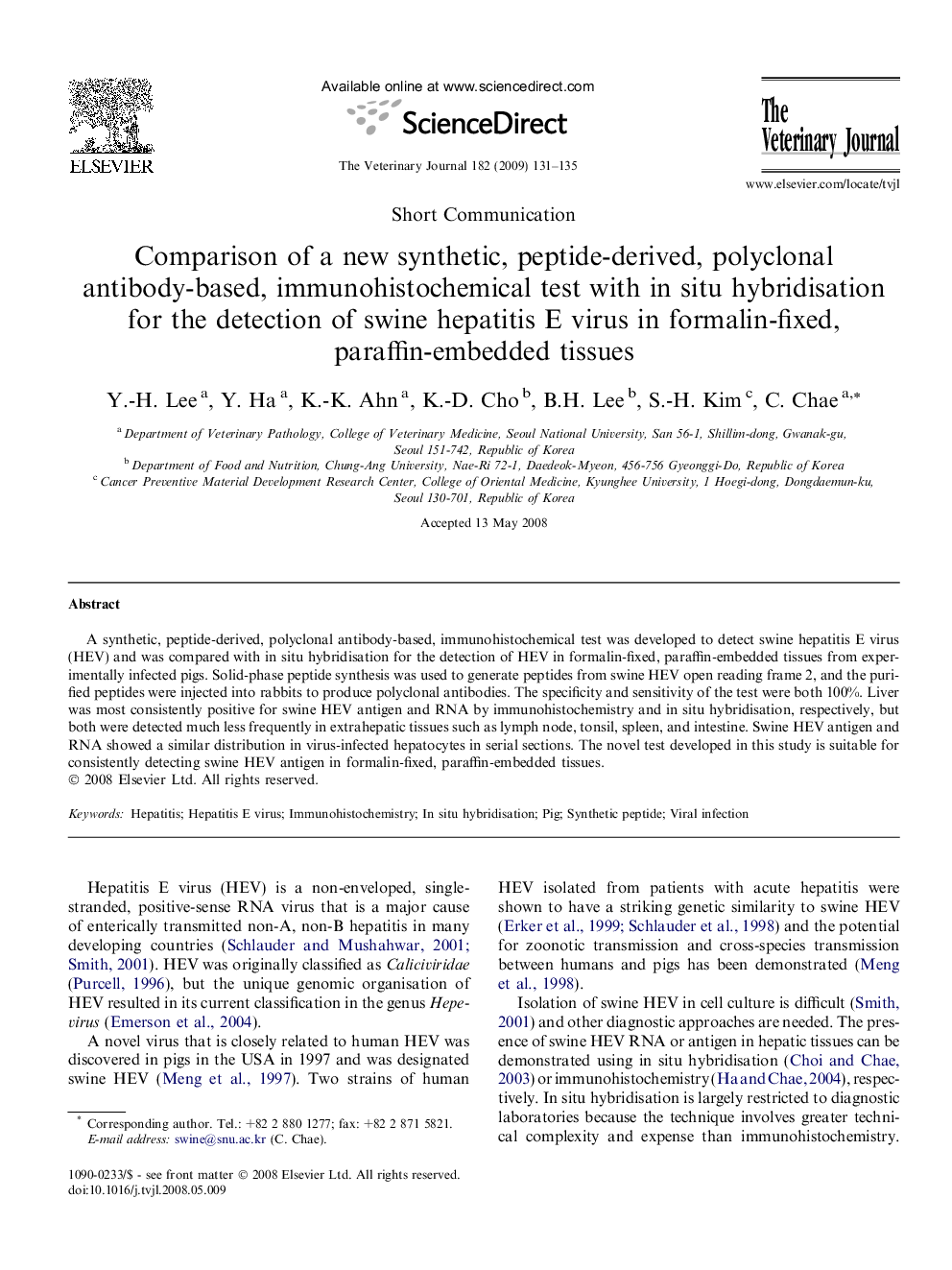| Article ID | Journal | Published Year | Pages | File Type |
|---|---|---|---|---|
| 2465217 | The Veterinary Journal | 2009 | 5 Pages |
A synthetic, peptide-derived, polyclonal antibody-based, immunohistochemical test was developed to detect swine hepatitis E virus (HEV) and was compared with in situ hybridisation for the detection of HEV in formalin-fixed, paraffin-embedded tissues from experimentally infected pigs. Solid-phase peptide synthesis was used to generate peptides from swine HEV open reading frame 2, and the purified peptides were injected into rabbits to produce polyclonal antibodies. The specificity and sensitivity of the test were both 100%. Liver was most consistently positive for swine HEV antigen and RNA by immunohistochemistry and in situ hybridisation, respectively, but both were detected much less frequently in extrahepatic tissues such as lymph node, tonsil, spleen, and intestine. Swine HEV antigen and RNA showed a similar distribution in virus-infected hepatocytes in serial sections. The novel test developed in this study is suitable for consistently detecting swine HEV antigen in formalin-fixed, paraffin-embedded tissues.
